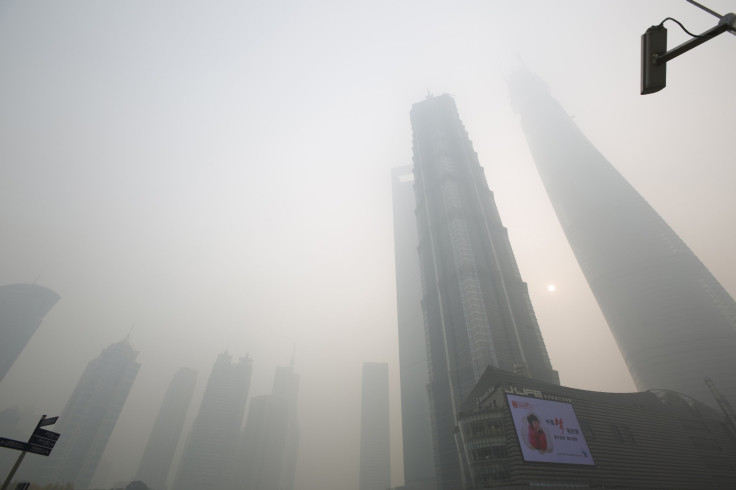Shanghai Pollution: Is Smog China's Newest Military Defense Weapon? [PHOTOS]

Pollution levels in Shanghai reached startling heights last week. Shanghai officials have warned citizens about the recent off-the-charts pollution levels, and ordered a selection of vehicles off the roads in an effort to curb the rampant hazardous air pollutants.
Normally a stunning, lit-up metropolis skyline, Shanghai’s famous bund was instead blanked with haze at the end of last week, obstructing the view of the city’s tallest buildings. All last week pollution levels hovered over toxic thresholds surpassing the chart’s highest value of 500.
One nationalist paper has taken a positive spin on the pollution crisis currently plaguing China. An article by the Global Times, the state-run affiliate paper of the Communist Party’s flagship publication, the People’s Daily, is claiming that the heavy, toxic smog is actually giving China a military defense advantage. Smog, the article is claiming, will help thwart enemy missile attacks because of low visibility. “Smog may affect people’s health and daily lives... but on the battlefield, it can serve as a defensive advantage in military operations,” the article wrote.
Previous reports have shown the infrared-based street surveillance cameras have been obstructed due to heavy smog in cities, something that would also happen for missile guidance that would rely on infrared rays or lasers.
Despite the positivity, China’s netizens aren’t buying it. “Are you saying the smog is not air pollution, but a national defense measure?” one blogger on popular Chinese social media platform, Weibo, said, according to the South China Morning Post. “After seaweed, China has added another secret weapon to the country’s national defense arsenal -- smog,” another user quipped.
© Copyright IBTimes 2025. All rights reserved.






















